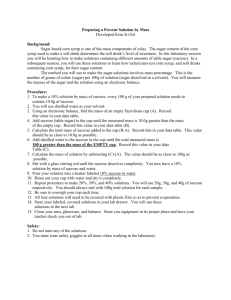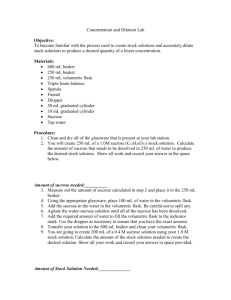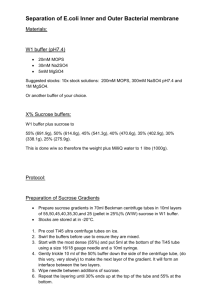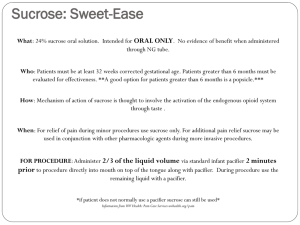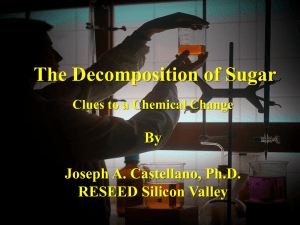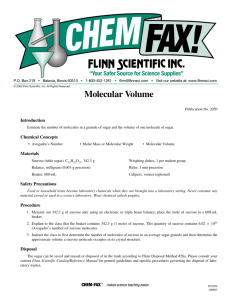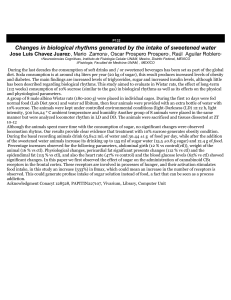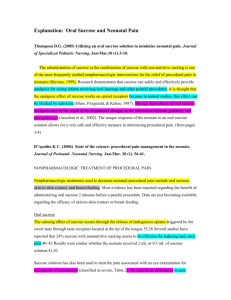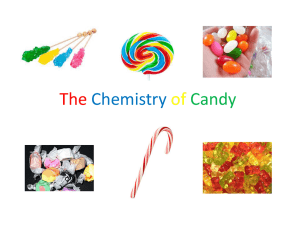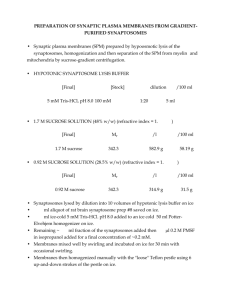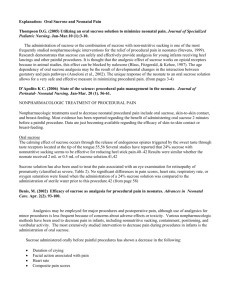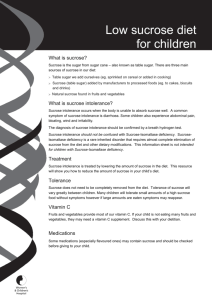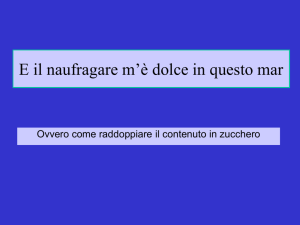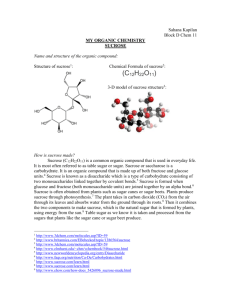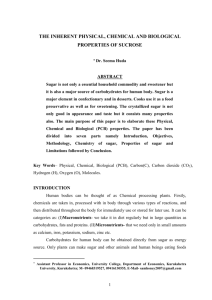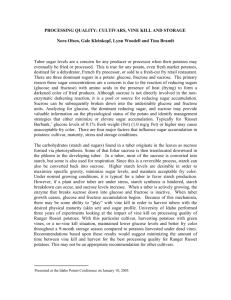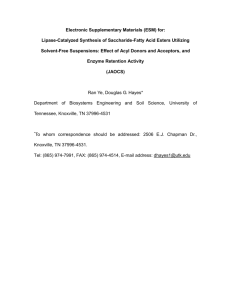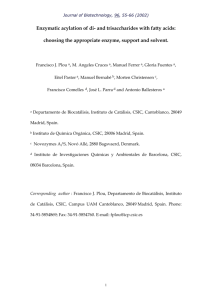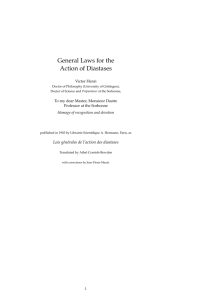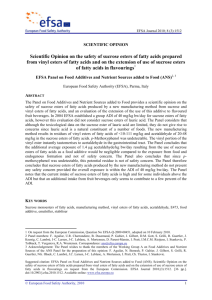Esterification of sucrose in solvent
advertisement
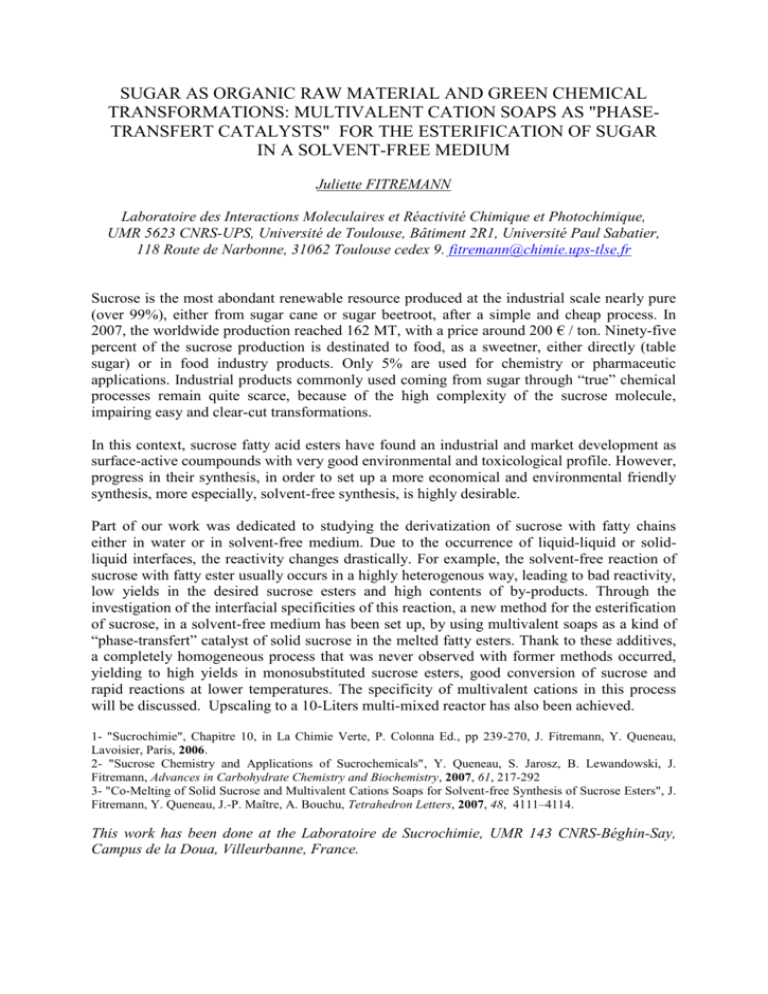
SUGAR AS ORGANIC RAW MATERIAL AND GREEN CHEMICAL TRANSFORMATIONS: MULTIVALENT CATION SOAPS AS "PHASETRANSFERT CATALYSTS" FOR THE ESTERIFICATION OF SUGAR IN A SOLVENT-FREE MEDIUM Juliette FITREMANN Laboratoire des Interactions Moleculaires et Réactivité Chimique et Photochimique, UMR 5623 CNRS-UPS, Université de Toulouse, Bâtiment 2R1, Université Paul Sabatier, 118 Route de Narbonne, 31062 Toulouse cedex 9. fitremann@chimie.ups-tlse.fr Sucrose is the most abondant renewable resource produced at the industrial scale nearly pure (over 99%), either from sugar cane or sugar beetroot, after a simple and cheap process. In 2007, the worldwide production reached 162 MT, with a price around 200 € / ton. Ninety-five percent of the sucrose production is destinated to food, as a sweetner, either directly (table sugar) or in food industry products. Only 5% are used for chemistry or pharmaceutic applications. Industrial products commonly used coming from sugar through “true” chemical processes remain quite scarce, because of the high complexity of the sucrose molecule, impairing easy and clear-cut transformations. In this context, sucrose fatty acid esters have found an industrial and market development as surface-active coumpounds with very good environmental and toxicological profile. However, progress in their synthesis, in order to set up a more economical and environmental friendly synthesis, more especially, solvent-free synthesis, is highly desirable. Part of our work was dedicated to studying the derivatization of sucrose with fatty chains either in water or in solvent-free medium. Due to the occurrence of liquid-liquid or solidliquid interfaces, the reactivity changes drastically. For example, the solvent-free reaction of sucrose with fatty ester usually occurs in a highly heterogenous way, leading to bad reactivity, low yields in the desired sucrose esters and high contents of by-products. Through the investigation of the interfacial specificities of this reaction, a new method for the esterification of sucrose, in a solvent-free medium has been set up, by using multivalent soaps as a kind of “phase-transfert” catalyst of solid sucrose in the melted fatty esters. Thank to these additives, a completely homogeneous process that was never observed with former methods occurred, yielding to high yields in monosubstituted sucrose esters, good conversion of sucrose and rapid reactions at lower temperatures. The specificity of multivalent cations in this process will be discussed. Upscaling to a 10-Liters multi-mixed reactor has also been achieved. 1- "Sucrochimie", Chapitre 10, in La Chimie Verte, P. Colonna Ed., pp 239-270, J. Fitremann, Y. Queneau, Lavoisier, Paris, 2006. 2- "Sucrose Chemistry and Applications of Sucrochemicals", Y. Queneau, S. Jarosz, B. Lewandowski, J. Fitremann, Advances in Carbohydrate Chemistry and Biochemistry, 2007, 61, 217-292 3- "Co-Melting of Solid Sucrose and Multivalent Cations Soaps for Solvent-free Synthesis of Sucrose Esters", J. Fitremann, Y. Queneau, J.-P. Maître, A. Bouchu, Tetrahedron Letters, 2007, 48, 4111–4114. This work has been done at the Laboratoire de Sucrochimie, UMR 143 CNRS-Béghin-Say, Campus de la Doua, Villeurbanne, France.
